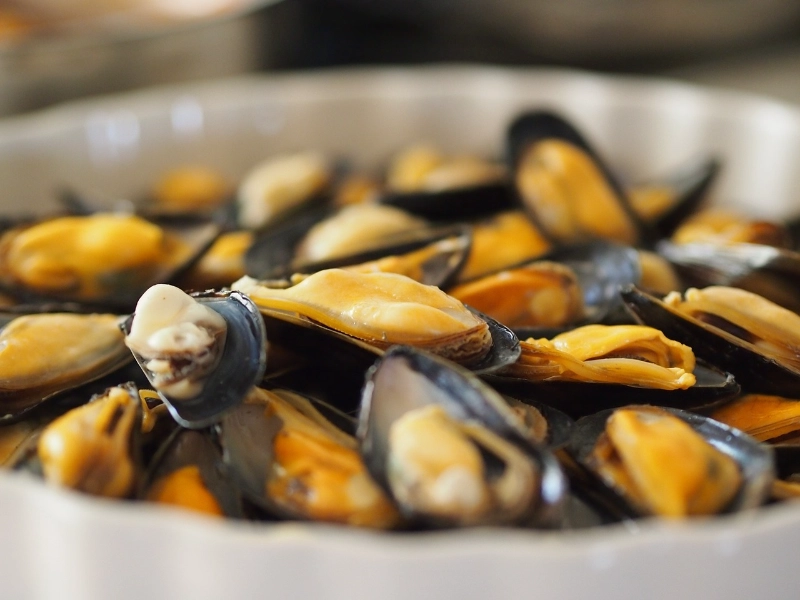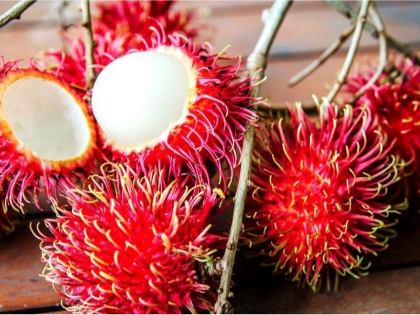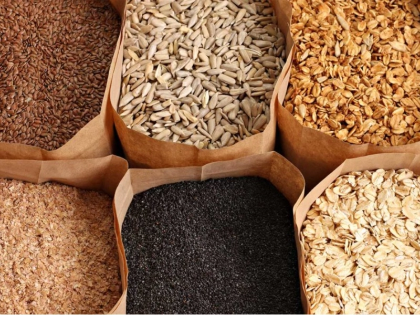Shellfish and Heart Health: A Sea of Cardiovascular Benefits
Apart from being a great addition to many cuisines, shellfish have amazing health advantages especially for heart health. Full of vital minerals, mussels can be quite helpful in encouraging cardiovascular fitness. Examining their nutritional composition, omega-3 fatty acids, low saturated fat content, and other helpful substances, this article looks at the several ways clams support heart health. Knowing these advantages helps people choose foods that promote their heart health.
Nutritional Profile of Shellfish
 Advertisement
Advertisement
Nutrient-dense foods, shellfish offer a range of vital minerals and vitamins needed for general wellbeing. Excellent sources of premium protein, which is essential for muscle repair and maintenance, are they are are Shellfish also abound in vital minerals including selenium, iron, zinc, and vitamin B12. Red blood cell development and brain activity depend on vitamin B12; iron is vital for oxygen movement all across the body. Strong antioxidants zinc and selenium boost immune system and help shield cells from harm. These minerals included in shellfish make them a great choice for preserving general health, including cardiac function. Including shellfish in a well-balanced diet allows people to enjoy a tasty meal while benefiting from these vital minerals.
Omega-3 Fatty Acids: Heart Health

Shellfish are particularly notable for their high omega-3 fatty acid content, which are well-known for their heart-protective effects. Essential fats, omega-3 fatty acids especially EPA and DHA, help greatly lessen inflammation, lower blood pressure, and increase general heart performance. Reducing the risk of heart disease depends on lower triglyceride levels, hence these good fats help to achieve that. Regular shellfish eating can help one consume more omega-3 fatty acids, so enhancing cardiovascular health. Regular omega-3 consumers had a reduced risk of heart attacks, strokes, and other cardiovascular events according to studies. Choosing shellfish as a source of these good fats can help people support their heart health while still having a delicious and healthy meal.
Low Content of Saturated Fat

Low saturated fat level of shellfish is another major benefit. Higher risk of heart disease and elevated cholesterol are associated with high intake of saturated fats. On the other hand, for people trying to control their fat consumption, mussels provide a lean protein supply with low saturated fat content, therefore benefiting their heart. Including shellfish in a diet allows people to enjoy good food without having to worry about more saturated fat sources, such red meats adding additional risk. For people trying to keep a good weight and lower their risk of cardiovascular problems, shellfish are therefore the perfect choice. One easy yet powerful approach to support heart health is to choose shellfish over more saturated fat-laden proteins.
Anti-inflammatory characteristics and antioxidants

Apart from their omega-3 fatty acids, shellfish are loaded in antioxidants and substances with anti-inflammatory action. Both of which are major causes of heart disease, these compounds assist fight oxidative stress and inflammation. Antioxidants help to promote general health by neutralising free radicals in the body, therefore lowering cellular damage. Unique antioxidants such astaxanthin and taurine found in shellfish, including oysters and clams, boost their cardiovascular advantages even further. While taurine helps to control blood pressure and cholesterol, astaxanthin has been demonstrated to increase blood flow and lower inflammation. Including shellfish in the diet helps people to maximise these strong substances in support of their heart condition and general well-being.
Ecological Solutions for Heart Disease
When one considers the health advantages of shellfish, one also must consider sustainability. Selecting responsibly produced shellfish not only helps environmental health but also cardiac function. Choosing sustainably grown shellfish is absolutely vital since overfishing and irresponsible methods can damage marine environments. Many companies offer certifications for sustainable seafood, therefore guiding consumers towards wise decisions. Choosing sustainable shellfish allows people to support methods that safeguard ocean environments and simultaneously reap the cardiovascular advantages. This all-encompassing approach to health—personal as well as environmental—ensures that shellfish will be enjoyed by next generations.
Including Shellfish in Your Consumption
Including shellfish in your diet can be fun as well as good for heart function. Shellfish are a flexible component in many cuisines since there are several methods to cook and present them. From oysters on the half shell to grilled prawns and clam chowder, the options are virtually unlimited. Shellfish should be combined with other nutrient-dense foods including whole grains, veggies, and good fats to maximise their heart health advantages. A great approach to enjoy shellfish while increasing your intake of heart-healthy nutrients is a seafood salad including mixed greens, avocado, and olive oil drizzles. While you prioritise your heart health, experimenting with many dishes and cooking techniques might help you find fresh favourites. All things considered, shellfish provide a great abundance of cardiovascular advantages, so they are a good addition to a diet aimed at heart health. Shellfish can significantly help to promote heart health with their rich nutritional profile, high omega-3 fatty acid content, low saturated fat levels, and antioxidant qualities. Making wise decisions and including sustainable techniques can help people to enjoy the wonderful tastes of shellfish and benefit their cardiovascular condition.









